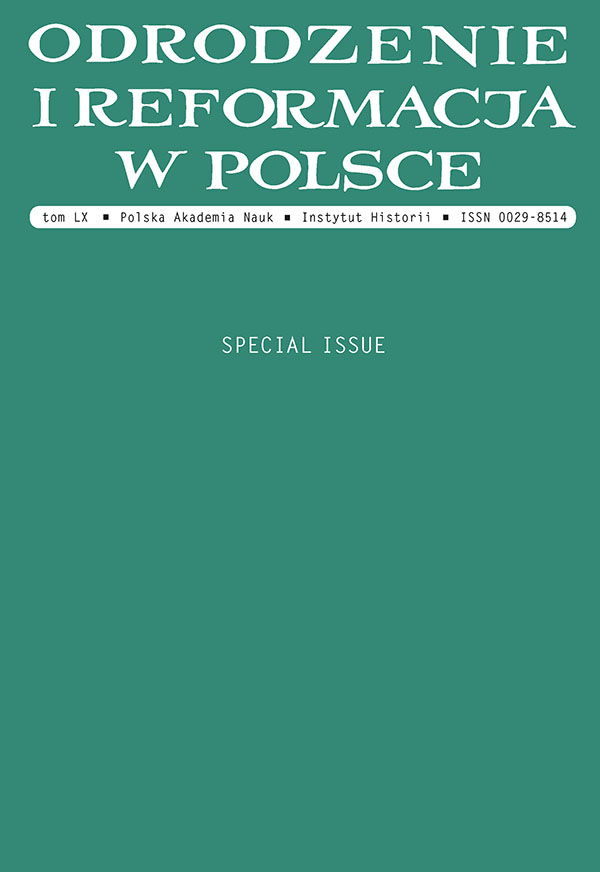Pietas and Sapientia? Education of Pastors in West Pomeranian Duchies, 1560–1618
DOI:
https://doi.org/10.12775/OiRwP.2016.SI.03Abstrakt
The education of pastors is an important indicator of the gradual professionalisation of this occupation. In turn, this professionalisation is related on the one hand to the process of modernisation and the development of a modern, secularised society. On the other, it is to be placed among issues relevant to the formation of confessions and confessionalisation, and so those processes in the early part of the Early Modern era which deepened the “clericalisation” of society rather than contributed to its secularisation. The former approach does not of course preclude the latter, as the theory of confessionalisation – understood as the emergence of increasingly clear distinctions between confessions in the theological and organisational sense and the tightening of the relation between religion and politics in the individual states of the Holy Roman Empire – seeks to account for the emergence of the modern state and its obedient subjects-citizens. Pastors as a professional group played a very important role in this process, although a study by Schorn-Schütte shows some limitations of this interpretation, particularly regarding the everyday and family lives of pastors.Pobrania
Opublikowane
2018-03-25
Jak cytować
1.
PTASZYŃSKI, Maciej. Pietas and Sapientia? Education of Pastors in West Pomeranian Duchies, 1560–1618. Odrodzenie i Reformacja w Polsce [online]. 25 marzec 2018, T. 60, s. 71–106. [udostępniono 4.2.2026]. DOI 10.12775/OiRwP.2016.SI.03.
Numer
Dział
Brak
Statystyki
Liczba wyświetleń i pobrań: 391
Liczba cytowań: 0



